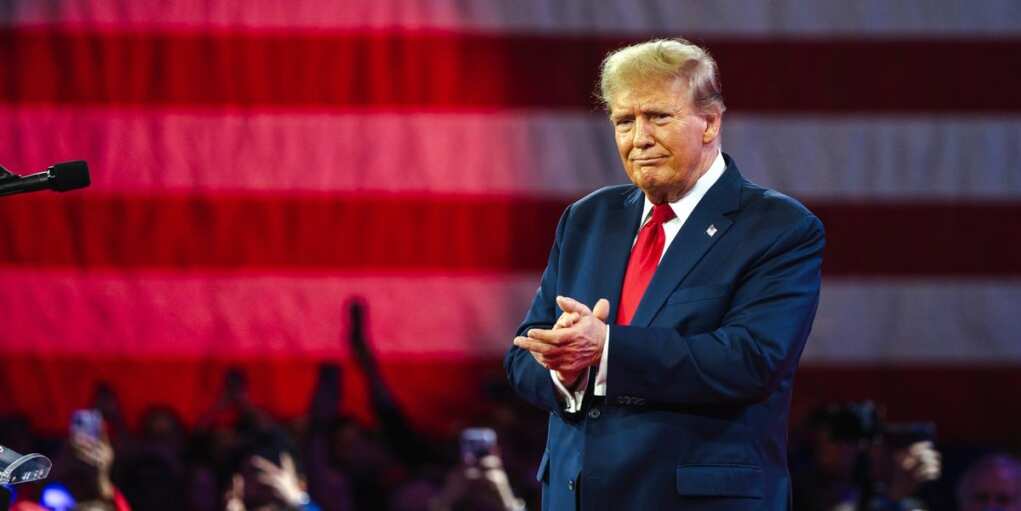Trump Scores New Financial Victory—Stocks Surge As A Result

After weeks of economic turmoil sparked by steep tariffs, President Donald Trump announced a truce with China on Monday — one that sent global stock markets soaring and could give his presidency the jolt it needs heading into the 2026 midterms.
The deal implements a 90-day cooling-off period between the world’s two largest economies, temporarily halting their escalating trade war. Trump’s team hailed it as a “historic trade win” for the U.S., claiming it reset relations with China while securing key concessions.
Under the agreement, U.S. tariffs on Chinese imports — which Trump raised to a staggering 145% in April — will be cut to 30%. In exchange, Beijing will drop its retaliatory tariffs from 125% to just 10%.
“We achieved a total reset with China,” Trump said from the White House, flanked by Treasury Secretary Scott Bessent and Trade Representative Jamieson Greer, fresh from marathon talks in Geneva.
Markets responded instantly. The Dow Jones Industrial Average jumped over 700 points at the open, and tech-heavy indexes followed suit, erasing much of the damage from April’s market selloff.
White House Press Secretary Karoline Leavitt called the deal “an extraordinary step in the right direction,” and the administration hinted that this is just the beginning. Trump himself teased a larger breakthrough, saying China has now agreed to “open up” its economy more broadly — a longtime demand from Washington.
Can it turn around Trump’s poll numbers?
Despite the economic momentum, the president is still grappling with sagging approval ratings. According to a recent Fox News poll conducted in late April, Trump’s job approval sits at 44%, with 55% disapproving. His numbers on the economy are worse: just 38% approve of his economic leadership, and only 33% back his handling of inflation and tariffs.
The tariff hikes, announced with fanfare last month on what Trump dubbed “Liberation Day,” had rattled global markets and intensified fears of a recession. While Trump maintained the tariffs were essential to forcing fair deals, many voters seemed wary of the price tag.
But with this first China truce and a prior agreement struck with the United Kingdom, Trump is beginning to show results that could blunt critics’ arguments.
“Trump’s approval ratings were under water because of economic fears. If this trade cooling-off period keeps markets stable and lowers consumer prices, he could absolutely get a political bounce,” said GOP strategist Ryan Williams.
Tariffs, trade, and Trump’s timing
Trump’s political team has made clear that restoring confidence in the economy is a top priority ahead of the 2026 midterms. With a sprawling domestic agenda to push through Congress, the president needs stronger poll numbers to hold his majorities.
The administration has also framed Trump’s tariff strategy as part of a broader pivot away from globalism, aimed at boosting U.S. manufacturing and forcing economic adversaries to play fair.
Critics say the initial shock from the tariffs hurt consumers and businesses. Supporters argue the short-term pain is necessary to reassert American economic strength.
In typical Trump fashion, the president took to social media to gloat over Monday’s rebound.
“NO INFLATION!!! LOVE, DJT,” he posted.
What’s next
Trump and his trade team are eyeing more deals in the coming weeks. Commerce Secretary Andrew Wheeler has suggested the administration is in active talks with multiple nations and hinted that another major agreement could be announced before summer.
Political observers say Trump still has ground to make up — particularly on economic messaging — but the truce with China marks a turning point.
“If he can follow this up with even one more big win, like a deal with the EU or Japan, that could be enough to neutralize the tariff backlash,” Williams noted.
For now, the administration will take the win. After a rocky few weeks, Trump’s team believes the tide may finally be turning. Whether that translates into a boost in approval ratings remains to be seen — but after Monday’s surge, they have reason to be optimistic.

